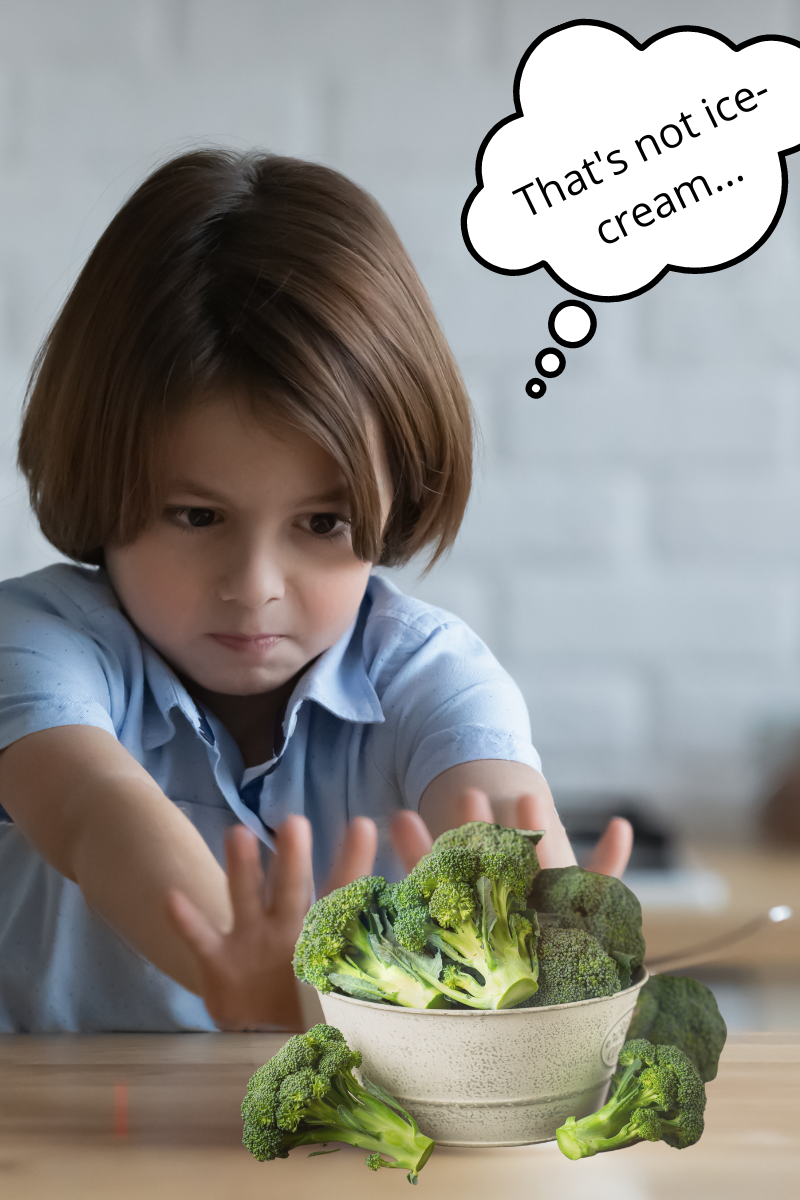Tips for Dealing with Picky Eaters
In most cases, fussy eating is a part of growing up. It's an expression of independent thinking and a need for mastery and control over one's environment, body and choices. But, I don't hear parents celebrating! Fussy eating can be exasperating.
But let's take a step back and think a little bit about what we would be doing if we were presented with limited food options that didn't appeal to us. Have you ever travelled some place where the food wasn't really stuff you'd eat? How did the locals treat you? Did they force feed you? If they did, I'm sure you wouldn't visit right? (1 star review!!!) We might be curious about the strange new foods there but we'd prefer to try them at our own speed.
Here are some tips to help you adjust your 'speed' and help your kids try the 'local' cuisine in your household.
The first thing is to keep your cool around meal times to minimise stress for your child (I know you will be stressed enough for the both of you); otherwise, Kids will associate meals with stress and that will make the business of navigating this tricky phase of life, even trickier. So, try to stay calm.
Make sure you clear the table and vicinity of unnecessary distraction, if you are able. So that the focus can be on building connection/relationship with one another at the meal time (if you are struggling with your connections - check out the FREE Toolkit for Emotional Storms, or sign up to the Empathic Discipline Course). Keep meal times reasonably short if you can i.e. 20-30 minutes...why?...dragging out meals with a fussy eater when you're trying to get them to eat things can also create associations with stress so don't prolong the suffering (for both of you!). Sometimes, kids forego hunger if they are distracted - so keep distractions at a minimum where you can.
Get the kids involved in the preparation of the meal. Make the food colourful, with interesting shapes for example. Find new ways of preparing vegetables - maybe turn them into jellies or jam! (check this out: https://www.myrecipes.com/ingredients/vegetable-recipes/vegetables-make-jam-too).
Only present up to 2 options of food that you want them to eat. Don't give too many options, that will only confuse them and kids can be indecisive. E.g.: do you want "apples or brussel sprouts" (ewww...actually. I love brussel sprouts. https://www.yummytoddlerfood.com/lemon-honey-brussel-sprouts/)
The 'offending foods' need to be small in portion at first. Have the kids touch, feel, lick, smell it. Yes. Lick the food. (Davin...you are a weirdo). They also have to see you eating it - make it fun. (mmm. yum). If they don't eat the food; don't worry about it. Keep presenting it to them consistently every day and in a matter of fact but firm way, but not too firm (you need to know your child and read the room well...are they getting antsy? if they are pull back)
Don't incentivise them with dessert! As much as that is tempting to do because they'll see the offending food as a chore to eat.
Persist, connect with them (understand, empathise, be patient), give limited options, stay calm, go slow (adjust your speed). For kids with sensory difficulties as in ASD or anxiety disorder. You may need some help with this, but the same principles apply.
I hope this gives you a few starting points to action in your parenting life.


